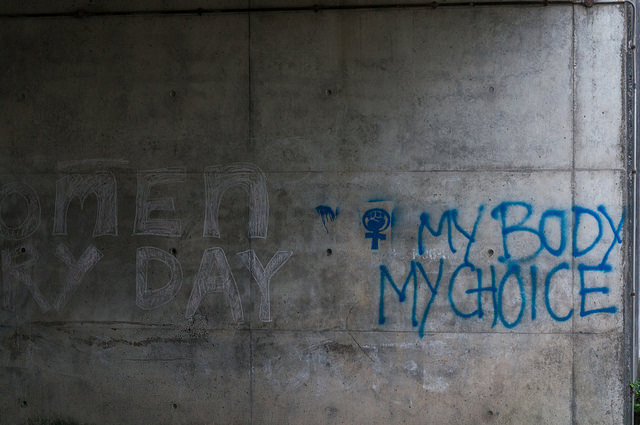Midterms brought mixed results for abortion rights

Tuesday’s midterm election brought mixed results for abortion rights. Democrats took control of the House, but anti-choice ballot measures passed in two states, leaving millions of women vulnerable to criminalization if Roe v. Wade is ultimately overturned. Still, women’s groups on both sides of the aisle were quick to celebrate their own victories.
“This election is a major victory for women people of color, LGBTQ people and anyone in this country who cares about access to reproductive healthcare,” Deirdre Schifeling, executive director of Planned Parenthood Votes, the political arm of Planned Parenthood, told MarketWatch. “These results show women have had enough.”
For people who support the right to choose, the midterm results certainly could have been worse. And, since Democrats now control the House, they are able to vote down any legislation that could pose an immediate harm to women’s health. Republican plans to cut off all federal funding from Planned Parenthood, for example, can no longer be implemented.
The shift in Congress, however, still leaves Trump with significant power to impede abortion access. On Wednesday, his administration pushed forward two new rules to restrict the right to choose. The first regulation change, which was finalized by the Department of Health and Human Services, enables employers to deny birth control coverage that was previously mandated by Obamacare if they cite a moral or religious objection. If put into place, the second regulation would change the billing requirements under the Affordable Care Act. “The proposal would separate health care billing from abortion-related coverage, and will require insurers to send a separate monthly bill to customers for premiums related to abortion services,” according to Fortune.
Meanwhile, elections results on the state level also showed mixed results. Nearly 60 percent Alabamans voted in favor of a constitutional amendment to “recognize and support the sanctity of unborn life and the rights of unborn children, including the right to life.” The move was celebrated by a group called the Alliance for a Pro-Life Alabama. West Virginia approved a similar measure by a slimmer margin. Both of these measures are considered “trigger bans,” which have no imminent impact on reproductive rights—but will come into force if Roe v. Wade is ever overturned. Four other states, Louisiana, Mississippi, North Dakota, and South Dakota, already have laws on the books that will immediately ban abortion if that happens.
Elsewhere in the country, shifts in the control of state-level legislatures will enable the passage of bills to protect the right to choose. In New York, for the first time in many years, Democrats now control both legislative chambers. That means elected officials can pursue remedies to ensure New Yorkers will still have access to abortion even if the Supreme Court overturns Roe. The Reproductive Health Act, which would preserve New Yorkers' reproductive rights, was passed by the State Assembly in January 2017 but was later stopped in the Senate by Republicans, who at that time controlled the chamber.
The Senate change is what the sponsor of the bill has been hoping for. Sen. Liz Krueger, told Gothamist back in September that if the chamber flips, she was confident the vote would be called again, this time with a successful outcome.
More articles by Category: Health, Politics
More articles by Tag: Abortion



























